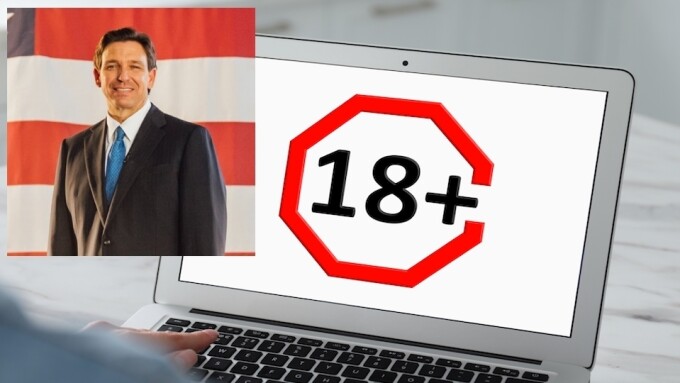TALLAHASSEE, Fla. — Gov. Ron DeSantis has vetoed HB 1, a bill in the Florida state legislature that originally restricted anyone under 16 from accessing social media, but was then combined with a separate bill mandating age verification of adult content.
“I have vetoed HB 1 because the Legislature is about to produce a different, superior bill,” DeSantis posted on Friday on his X account. “Protecting children from harms associated with social media is important, as is supporting parents’ rights and maintaining the ability of adults to engage in anonymous speech. I anticipate the new bill will recognize these priorities and will be signed into law soon.”
There are no details as to this new bill, but Republican Senate President Kathleen Passidomo told the Florida Politics news site that “both the Speaker and the Governor are working together on language that will work for them to basically fix the concerns that the Governor has with HB 1. And my understanding is that they are in a really good spot.”
Passidomo said the Legislature will revive debate on HB 3, Florida’s copycat age verification bill, introduced by a legislator who is also a pastor, and based on other laws championed by religious conservatives across the country. Since the House had passed HB 3 as a separate bill, the Senate can revive that part of the vetoed HB 1.
As XBIZ reported, Republican state legislators folded HB 3 into the now-vetoed HB 1, a larger bill that aimed to prevent anyone under 16 from using certain social media platforms.
HB 1 was a priority of Republican House Speaker Paul Renner, who claimed social media is “harming the mental health of children.”
A Controversial, Religiously Inspired Anti-Porn Bill
HB 3 was introduced by Rep. Chase Tramont, a politician and ordained clergyman who serves as pastor at Oceanway Church in New Smyrna Beach.
Democratic Sen. Shevrin Jones voted against the bill during its committee hearing, asserting, “It is not the Legislature’s job to parent the parents in how they parent.”
Two of the Republicans who voted for the bill at that hearing, Sen. Jay Collins and Sen. Jay Trumbull, expressed concern about governmental overreach trumping parental rights.
Collins stated that he was “very torn on this bill,” before ultimately falling in line with his fellow Republicans.
Last month, Florida-based First Amendment expert Lawrence Walters, of Walters Law Group, wrote to the Florida Senate Judiciary Committee on behalf of his client, the Woodhull Freedom Foundation, opposing HB 3.
Woodhull described HB 3 as “not only unconstitutional and a danger to consumer privacy, but ineffective at preventing minors from accessing adult content.”
Walters advised the committee, “Parental controls and device-level filters are effective tools if parents and schools are willing to use them. This technology not only puts power where it should be — in the hands of parents and caregivers — it is widely available, fully supported by industry, and endorsed by the Supreme Court.”
Walters told XBIZ the attempt to combine HB 1 and HB 3 was ill-advised.
“The two bills raise very different issues and should be considered as independent pieces of legislation,” he noted. “Lumping the bills together represents a cynical attempt to create a ‘must pass’ piece of legislation without reasoned debate on separate topics.”








